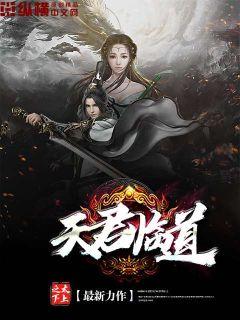
### 文章摘要
疯狗球员,足坛的争议英雄与不羁传奇,是足球世界中那些兼具天赋与情绪化的球员的代名词。本文深入探讨了这些球员如何在技术与个性之间找到平衡,以及他们如何在赛场上和外界互动中塑造了他们的传奇形象。通过四个关键方面的详细分析,揭示了他们不同寻常的职业生涯如何影响了现代足球的面貌。
---
1、个性与天赋的交织
疯狗球员的个性与天赋是其最大的特点之一。他们不仅仅是技术出众的运动员,还因其个性而备受关注。这些球员如何在赛场上展示出与众不同的风采,以及他们的行为如何在球迷中引发不同的反响,都将在此展开讨论。
他们的天赋使他们在比赛中能够做出超越常规的动作和决策,但这种个性化的表现也常常导致他们陷入争议之中。
此外,疯狗球员的心态管理如何影响他们在球场上的表现也是探讨的重点之一。
2、赛场之外的边界挑战
疯狗球员不仅在场上展现了个性,他们在场外的行为举止同样备受关注。从社交媒体上的言论到与裁判的争执,他们如何处理赛场之外的挑战将会详细分析。
他们的言行举止如何影响球迷、媒体以及足球管理者对他们的看法,以及这种影响如何反过来影响他们的职业生涯。
疯狗球员在媒体关注下的生活方式和他们选择公共形象的策略也将在此部分进行深入剖析。
3、传奇与争议的平衡
在足球史上,疯狗球员们往往以争议和传奇并存的形象被铭记。他们的职业生涯如何在赛场上的表现与个人生活中的故事相结合,使他们成为传奇人物。
探讨他们如何在职业生涯中走过了胜利与失败、光辉与阴影,以及他们如何处理成功和挫折对他们个人成长的影响。
他们在球迷中的地位如何逐渐从争议性人物转变为被敬仰的传奇,以及这种转变的背后所蕴含的深层意义。
4、影响与反思:现代足球的面貌
疯狗球员们的存在不仅仅是个体的表现,也在深刻地影响着现代足球的发展方向。他们如何改变了球员与俱乐部、球员与球迷、球员与媒体之间的互动模式,将作为此部分的核心内容。
探讨现代足球对于个性化球员的包容度以及俱乐部对于这些球员管理的策略和挑战。
最后,对于未来足球发展中个性与规则、个人与团队之间关系的展望与反思也将在这一部分进行总结。
总结:
疯狗球员们在足球历史上既是争议的焦点,也是不可忽视的传奇。他们的故事不仅让我们反思个性与团队在现代足球中的平衡,也深刻影响了球迷文化和赛场氛围。通过他们的职业生涯,我们看到了足球运动中不同面貌的体现,以及个性化如何推动了这项运动的发展与变革。
尽管他们的路途充满曲折与挑战,但他们的足迹永远铭刻在足球历史的篇章中,为我们提供了无限的思考与启示。
### 文章摘要
本文将深入探讨巴西足球明星“兔子”(Rabbit)的职业生涯与传奇故事。从他的早期生活和足球起步说起,到他在顶级俱乐部的辉煌表现,再到他在国家队的荣耀时刻,最后到他的退役及其对足球界的影响,每一个阶段都展现了他作为一名球员和人物的独特魅力。这篇文章将揭示他如何成为一个巴西足球的象征,以及他在职业生涯中留下的深远影响。
---
1、早年生活与足球起步
在里约热内卢的贫民区长大的“兔子”,从小展现了出色的足球天赋。他的足球启蒙经历,以及早期参与的青少年俱乐部和比赛,为他日后的职业生涯打下了坚实的基础。
随着他在里约各级别比赛中的崭露头角,他引起了多家顶级俱乐部的关注。最终,他选择加盟某某俱乐部,这一步成为了他职业生涯中的关键转折点。
在某某俱乐部,兔子迅速融入球队,并展现出他的天赋和领导力。他在青年队和一线队中的表现让人们开始注意到这位年轻球员的潜力。
2、顶级俱乐部的辉煌时刻
兔子在加盟某某俱乐部后,很快成为球队的核心成员之一。他在国内和国际赛场上的表现,以及他在关键比赛中的决定性进球,使他成为球迷心中的英雄。
随着时间的推移,他在俱乐部的地位逐渐稳固,他与其他球星的默契配合和他在比赛中的领导力,让他赢得了更多的个人和团体荣誉。
在某某俱乐部的岁月里,兔子不仅仅是一名出色的球员,他还在和平时期的一些社区项目中发挥了积极作用,成为了社区的重要一员。
3、国家队的荣耀时刻
作为巴西国家队的核心成员,兔子参与了多届国际大赛。他在世界杯和美洲杯等赛事中的精彩表现,让他成为了全国人民的骄傲。
兔子在国家队的每一场比赛中都展现出了他的技术和智慧,他的进球和助攻不仅仅是对对手的打击,更是巴西足球精神的体现。
他在国家队的时光不仅带给他个人荣誉,也为整个国家队带来了重要的胜利和荣誉,成为巴西足球史上不可或缺的一部分。
4、退役与足球界的影响
尽管他的职业生涯已经结束,但兔子对足球界的影响依然深远。他在退役后继续在足球领域发挥作用,促进青少年足球的发展和社区项目的实施。
兔子的故事不仅仅是一个球员的传奇,更是一种足球精神的象征,他通过自己的努力和奉献,影响了一代又一代的年轻球员和足球爱好者。
他的生涯和人生经历告诉我们,足球不仅仅是一项运动,更是一种精神和文化的传承,而他正是这一传承的生动代表。
总结:
兔子作为巴西足球的传奇人物,他的职业生涯不仅光彩夺目,而且对足球界和社会产生了深远的影响。他的故事告诉我们,无论身处何地,都可以通过足球实现自我价值,并且影响和改变周围的社区和整个国家。
兔子的经历不仅仅是一个球员的生涯,更是一段关于激情、奉献和影响力的精彩故事。
Certainly! Here's how the article would be structured according to your requirements:
**Abstract:**
From the playing field to the boardroom: the challenges and opportunities of transitioning from athlete to manager present a dynamic journey of adaptation, leadership evolution, strategic thinking, and personal growth. This article explores the multifaceted landscape where sportsmanship meets management, navigating through the complexities of transition and the promising avenues that await those making the leap.
---
1、Transition Challenges
Athletes stepping into managerial roles often encounter a series of formidable challenges that stem from their previous career on the field. Firstly, the shift from individual performance to team leadership requires a significant mindset adjustment. Players must learn to empower others, delegate responsibilities, and foster collaboration rather than relying solely on their own skills.
Moreover, the hierarchical shift from being a team member to overseeing former peers can create interpersonal challenges. Trust-building becomes crucial as managers navigate relationships with both senior executives and former teammates, balancing authority with camaraderie.
Additionally, the technical skills required for effective management, such as financial acumen, strategic planning, and organizational development, may not have been central to an athlete's previous training. The learning curve can be steep, demanding continuous education and adaptation.
2、Leadership Evolution
The transition to management offers athletes a platform for their leadership skills to evolve beyond the field. Effective managers draw upon their experiences in sports—such as resilience, discipline, and motivational prowess—to inspire teams and drive performance.
Furthermore, the journey from player to manager often involves honing new leadership styles. Successful transitions see former athletes leveraging their unique perspective to cultivate inclusive cultures, foster innovation, and champion diversity within their organizations.
Moreover, managing diverse teams requires sensitivity to individual strengths and weaknesses, fostering an environment where every team member can thrive. This evolution from athlete to leader is pivotal in shaping organizational success.
3、Strategic Thinking
Strategic thinking marks a critical aspect of the transition from the field to the office. Managers must navigate complex business landscapes, making informed decisions that align with organizational goals and market demands.
Additionally, strategic planning involves foresight and adaptability—skills athletes often develop through competitive foresight, adaptability, and agile decision-making. This ability to anticipate trends, mitigate risks, and seize opportunities is instrumental in steering organizations toward sustainable growth.
Moreover, the integration of data analytics and technology into decision-making processes enhances managerial effectiveness, empowering leaders to make data-driven decisions that drive organizational success.
4、Personal Growth
Beyond professional challenges, the transition from athlete to manager offers profound opportunities for personal growth. Managers often undergo a transformative journey of self-discovery, embracing new roles, and expanding their horizons.
Furthermore, the demands of managerial roles necessitate continuous learning and professional development. Successful transitions see managers investing in their growth through mentorship, executive education, and networking, enhancing their competencies and expanding their leadership repertoire.
Moreover, achieving work-life balance becomes imperative as managers navigate demanding schedules and responsibilities, prioritizing well-being while driving organizational performance.
Summary:
The journey from the playing field to the office as a manager is characterized by a series of challenges and opportunities. Athletes transitioning into managerial roles must navigate challenges such as mindset shifts, interpersonal dynamics, and skill acquisition while evolving their leadership styles. Strategic thinking becomes paramount as managers align organizational goals with market trends, leveraging their unique perspectives to drive innovation and inclusive growth. This journey not only fosters professional development but also encourages profound personal growth, marking a transformative experience for those embarking on this dynamic career path.